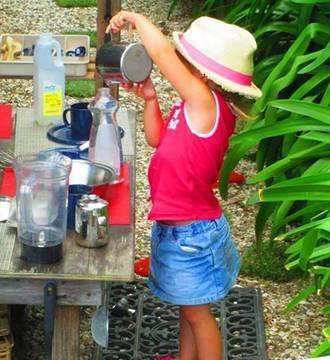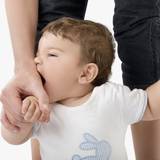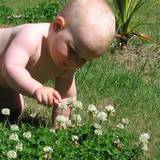Shop
01552
https://www.under5s.co.nz/shop/Hot+Topics+Articles/Child+Development/Early+brain+development+and+learning.html
Early brain development & learning
|
Early childhood experiences impact and determine how the brain develops. Find out how we can help to stimulate our children’s early brain development and learning, and help them reach their full potential.
|
You might also be interested in ...
Toddlers who bite
Biting amongst toddlers is not uncommon. In most cases it’s just a phase they go through. We take a look at why toddlers bite and ways to help eliminate their biting altogether.
5 Ways to make wonder a part of your child’s day
Your child was born full of wonder. Everything seen, tasted, touched, smelled is a first time experience met with exploration. These experiences lay the foundation of brain development and learning. What gets emphasized as important in the first 5 years of life, actually shapes how the brain functions.
join usJoin us on social media for all our latest news. |
sign upSign up and receive our latest newsletters. |
|







Find out how we can help to stimulate our children’s early brain development and learning, and help them reach their full potential.
A child's brain
Where would we all be without our brains?
This incredible mechanism controls every single thing we do, from eating and drinking to thinking, learning and experiencing emotions.
A child is born with 100 billion brain cells and 50 trillion connections. During the first few months the number of connections they have multiplies by 20. Each brain cell can connect with as many as 15,000 other brain cells.
A 3 year old child has twice as many connections as an adult and if they are not used, they wither away. By the time a child is 5 years old, 90% of the brain connections will be formed.
There will never be a time in a child’s life when the experiences and opportunities they have will be of greater importance than during their early childhood years.
Early brain development & learning
The brain is the control centre of our body, but how can we help our children’s brains to reach their full potential?
Early sensory experiences create new connections between brain cells and repetition of these experiences strengthens them.
The number of brain cell connections increase or decrease, depending on the environment and the experiences that a child is exposed to.
Children continue to learn throughout life, but they do not conquer new skills or recover from stumbling blocks as quickly and as easily as in their early years.
It is therefore important to provide children with the best opportunities for learning and growth during the early years when their minds are most prepared to absorb new information.
9 Ways to stimulate children’s brain development
Children need to be exposed to a continuous stream of new information and experiences that are challenging and allow them to extend their thinking and understanding.
They should experience a variety of approaches to learning, as well as opportunities to interact with different types of learning media.
Examples include:
1. PLAY
2. TALK
3. READ
4. MUSIC
5. ART
6. MOVEMENT/EXERCISE
7. LOVE
8. NUTRITION
9. SLEEP
The development of a child's brain holds the key to the child's future. The early years have an everlasting affect on the development of young children's brains, however these early years also go by very quickly.
Play, talk, read, sing, laugh, dance, create and have fun with your children.
Encourage healthy eating and enough sleep, but most importantly show your children how much you love them, in as many ways as possible.
By helping your child's brain to develop, you are nourishing your child's lifetime potential.
Tell your friends
Like the article you've just been reading? Click on the Refer A Friend link at the top of the page and send the details to friends who might like to read it too.More Hot Topics for you to enjoy
Source: Article written by Emma Loggenberg. Emma runs a company called Tuputupu Kids and has recently completed her Master Thesis in Educational Psychology. She also has a Graduate Diploma in Teaching and has completed advanced courses in Play Therapy.